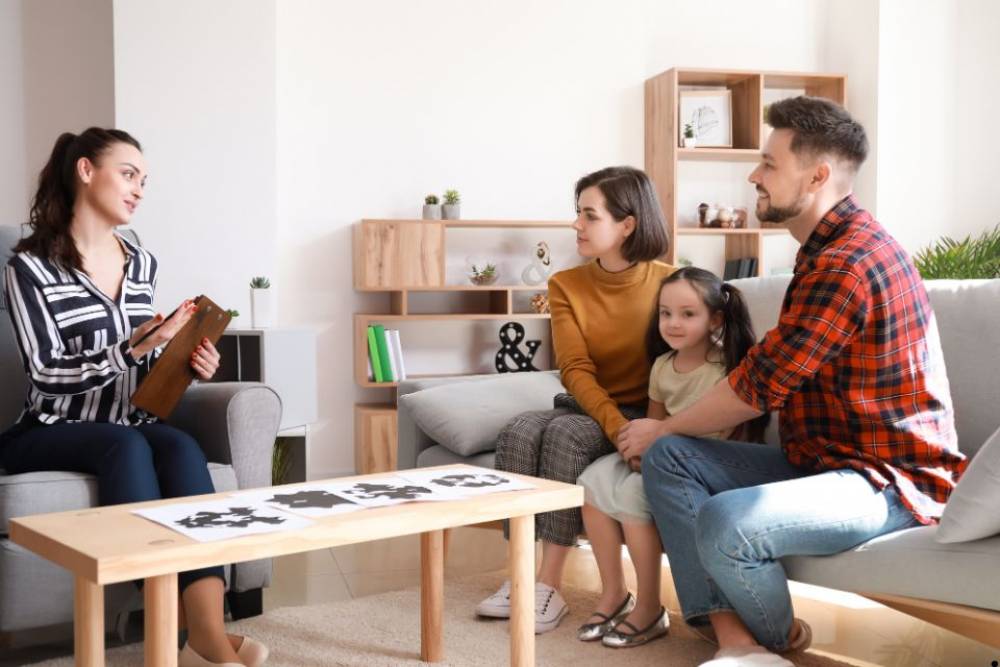
The Role of Communication in Family Counseling
Communication is a cornerstone in family counseling, influencing family dynamics and shaping therapeutic interventions' effectiveness. In this environment, effective communication involves not just the exchange of words but also non-verbal cues, active listening, and empathy. These elements create a safe space for family members to express their thoughts and feelings. As families face various challenges, whether from relationship issues, parenting struggles, or external stressors, the ability to communicate openly can significantly impact the healing process. We will explore how communication serves as a vehicle for understanding, conflict resolution, and emotional support in Curio Counselling near Calgary, emphasizing its importance for fostering healthier relationships.
Understanding Family Dynamics Through Communication
To appreciate the role of communication in family counseling, it's crucial to recognize how family dynamics operate. Each family is composed of unique relationships that influence how members interact. These dynamics can include power imbalances, generational differences, and varying communication styles, all of which can complicate discussions in a therapeutic setting. Effective communication allows family members to articulate their feelings, concerns, and expectations, thereby clarifying misunderstandings that may have existed for years. Through the guidance of a counselor, family members can identify maladaptive communication patterns, such as criticism or avoidance, that may exacerbate tensions. The counselor can facilitate a dialogue that promotes empathy and understanding by encouraging each member to share their perspectives. This exchange helps family members see each other in a new light and lays the groundwork for developing healthier communication habits that can extend beyond therapy sessions.
Conflict Resolution and Communication Strategies
One of the primary goals of family counseling is to address and resolve conflicts that may arise within the family unit. Conflicts can manifest in various forms, from disagreements over parenting styles to unresolved issues from the past. Effective communication is vital for navigating these conflicts, as it enables family members to express their feelings honestly without resorting to blame or hostility. Counselors often employ various communication strategies, such as "I" statements, active listening techniques, and role-playing exercises, to constructively guide families in articulating their needs and feelings. For instance, using "I" statements encourages individuals to express their feelings without placing blame, thus reducing defensiveness and fostering a more open dialogue. Family members learn to validate each other's experiences through active listening, promoting a sense of belonging and understanding. As these strategies are practiced in therapy, families develop skills that help them manage conflicts more effectively in their everyday lives.
The Importance of Non-Verbal Communication
While verbal communication is vital in family counseling, non-verbal communication often conveys even more than words alone. Body language, facial expressions, and tone of voice are crucial in how messages are perceived. Family members may inadvertently communicate negative emotions through non-verbal cues, such as anger or frustration, even when their words suggest otherwise. This discrepancy can lead to misunderstandings and heightened tensions. A counselor can help families become more aware of their non-verbal signals and teach them to align their verbal and non-verbal communication. By fostering a more cohesive communication style, family members can convey genuine feelings of support and understanding. Recognizing and adjusting non-verbal communication can be transformative, allowing families to create a more nurturing atmosphere where every member feels seen and heard.
Fostering Emotional Support Through Open Dialogue
Communication in family counseling also serves as a vital means of fostering emotional support among family members. Many families struggle with expressing vulnerability, which can hinder their ability to connect on a deeper emotional level. Through guided discussions, family members can learn how to express their feelings without fear of judgment, creating a safe space for vulnerability. This process is essential for building trust, as emotional safety allows individuals to share their thoughts and fears openly. When family members feel supported, they are more likely to engage in constructive dialogue and work collaboratively to address challenges. Counselors often encourage families to share positive affirmations and expressions of appreciation, further solidifying bonds and enhancing emotional resilience. The practice of open dialogue not only improves current relationships but also instills a culture of emotional awareness that can benefit future interactions.
Building Communication Skills for Long-Term Success
One of the lasting impacts of family counseling is the development of communication skills that can benefit families long after therapy. Counselors equip families with tools and strategies that empower them to navigate difficult conversations and conflicts more easily. These skills often include conflict resolution techniques, active listening practices, and the ability to articulate feelings without resorting to criticism. Families that practice these skills during counseling sessions are more likely to adopt them in their daily interactions, leading to healthier communication patterns. Moreover, the emphasis on continuous practice and reflection helps family members adapt their communication styles as relationships evolve. Building these skills creates a foundation for ongoing emotional support, ensuring families can address challenges proactively rather than reactively.
Communication is crucial in family counseling, influencing individual relationships and the family unit. Families can navigate challenges with greater ease by understanding family dynamics, utilizing effective conflict resolution strategies, recognizing the significance of non-verbal cues, fostering emotional support, and building long-term communication skills. The ability to communicate openly and honestly strengthens relationships and paves the way for a more harmonious family environment. As families continue to practice these skills, they enhance their resilience and emotional well-being, creating a healthier, more supportive home life.

